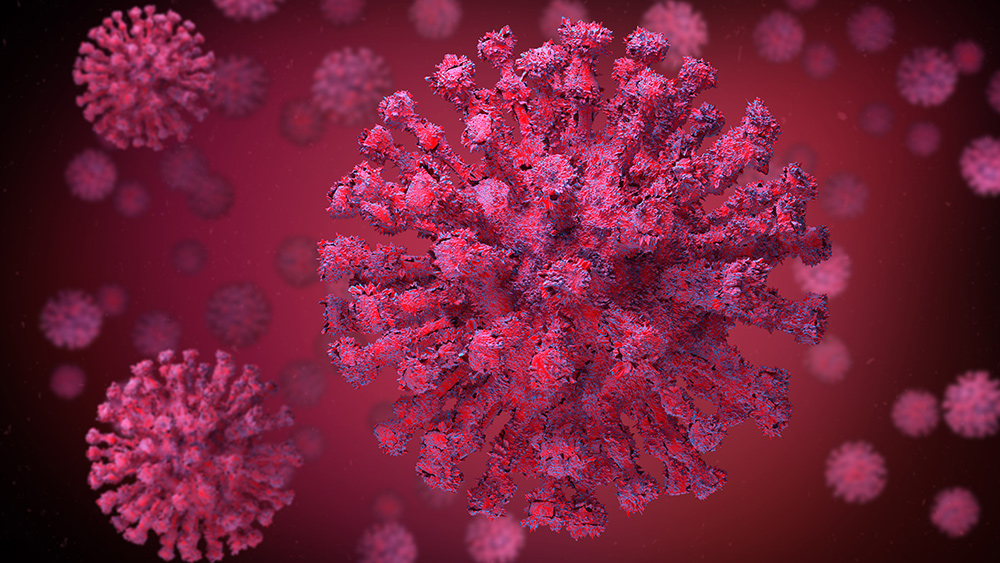
The recent Wuhan coronavirus (COVID-19) variant identified in South Africa appears to threaten the world's post-lockdown economic recovery.
Experts say the B11529 omicron strain, which is much more infectious than the earlier B16172 delta variant, could prolong the ongoing inflation in the United States.
Jerome Powell, chairman of the Federal Reserve, said the new variant "muddies the outlook on inflation" as prices could keep rising for a longer period than initially projected. In a Nov. 30 testimony to the U.S. Senate, he pointed out that the rise in COVID-19 cases and the omicron strain's emergence "pose downside risks to employment and economic activity, and increased uncertainty for inflation."
Powell also noted that health-related concerns could "reduce people's willingness to work in person." This, in turn, "would slow progress in the labor market and intensify supply chain disruptions."
Given the concerns about the purportedly more infectious variant, many companies have expressed fears that restrictions that crippled different industries in 2020 could return again. Nissan Motor Company spokeswoman Lloryn Love-Carter said of the omicron variant's rise: "This is new. We're monitoring, of course, but we still have a lot of pretty strict COVID protocols in place."
Meanwhile, credit rating agencies Fitch Ratings and Moody's investors service warned that the omicron strain "could hurt global growth prospects and push up prices." (Related: Ten OMICRON "variant" predictions for 2022 and beyond… globalist authoritarian playbook stripped naked.)
Fears over the vaccine-resistant variant sent shockwaves to different stock markets worldwide on Nov. 26. However, markets calmed on Nov. 29 following reports that the omicron strain might prove to be milder than initially reported.
WHO: Omicron variant carries "very high" infection risk
The World Health Organization (WHO) said on Nov. 29 that the omicron variant carried a very high global risk of infection surges. The global health body advised its 194 member nations that any surge in infections could have severe consequences.
"[The omicron variant] has an unprecedented number of spike mutations, some of which are concerning for their potential impact on the trajectory of the pandemic," it said.
According to the WHO, further research is needed to understand the new strain's potential to evade natural and vaccine-induced immunity.
South African infectious disease expert Salim Abdool Karim pointed out that the omicron variant appears to be more transmissible. The expert projected that following the discovery of the variant, COVID-19 cases in South Africa could likely go beyond 10,000 a day.
Karim added that it is too early to say whether symptoms arising from an omicron variant infection were more severe than earlier strains. Other scientists concurred with the expert, saying that it could take weeks to fully understand the severity of the new variant.
US moves to identify omicron variant
The U.S. and other countries have blocked entry for most travelers coming from eight African nations, including South Africa.
South African President Cyril Ramaphosa denounced these travel bans as "unjustified and unscientific." He pointed out that such bans damage economies that rely on tourism. (Related: Black Americans should be OUTRAGED by white-guy Biden's RACIST ban on flights to USA from several African nations.)
Meanwhile, President Joe Biden called on Americans not to panic despite the omicron variant's emergence. He said during a White House press conference: "This variant is a cause for concern, not a cause for panic. We're going to fight and beat this new variant."
According to Biden, the travel restrictions would give the U.S. enough time to get more people vaccinated. Furthermore, he said that the federal government was working with pharmaceutical companies to make contingency plans in case new vaccines were required.
Biden also said the U.S. would not go back to lockdowns this winter, but called on people to get the COVID-19 vaccine and wear face masks.
The Centers for Disease Control and Prevention (CDC) also acknowledged the omicron variant's discovery in a Nov. 26 press release. "We are working with other U.S. and global public health and industry partners to learn more about this variant, as we continue to monitor its path," it said.
According to the CDC, no cases of COVID-19 caused by the omicron variant have been identified in the U.S. to date. The CDC is "continuously monitoring variants," with the expectation that the omicron strain will be identified quickly the moment it emerges in the United States.
Pandemic.news has more articles about the threat of the new B11529 omicron variant.
Sources include:
Please contact us for more information.















